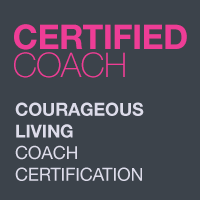
“Filipino workers are the most stressed in Southeast Asia,” a news website screeched in alarm. According to a Gallup poll, 50% said that they felt stressed “a lot of the day” compared to our neighbors in Thailand, Cambodia, Myanmar, and Vietnam.
I wondered: How did we get from being one of the happiest people in the world to being the most stressed?
But this series is not a treatise or investigation about how we got here. Rather, I want to share the strategies and tools to manage stress that I wish I had known in my 20s and 30s.
Stress is insidious. You are familiar with the way it harms the body and messes up your mind and emotions. Its more dangerous effect is when it erodes your self-worth and hampers your ability to experience joy, fulfillment, and satisfaction in your life. Being in a perpetually stressed state makes you feel like you’re on an exercise bike to nowhere, unsure about where you’re headed or what the point of all this work is for. You think you’re going somewhere but you’re actually just staying in place.
When you get sick enough to finally end up in a hospital for tests or, worse, treatment, the usual advice from doctors is: “Reduce your stress.”
I would receive this advice during executive check-ups or when I had to see the doctor for various ailments: a headache that wouldn’t go away, intense period pain, palpitations, or even skin issues that couldn’t be diagnosed.
The question I always had after hearing that prescription is: HOW?
The Stressed-Out Years
I was an incredibly stressed teenager. I was the classic Type A overachieving perfectionist. For me, failure was the worst thing that could happen to me. I never really tried to understand the consequences of failure. All I know was that they were dire—fatal to my future success, fatal to my parents’ pride, fatal to my expectations of who I was.
So I hustled hard. When I drove to school in college, I laid my books open on the passenger seat so I could review. Instant coffee at 2 a.m. was my best friend. Meals would be skipped so I could study. I always told myself: I may not be the smartest, but I have the most stamina. From all this hustling, not only did I graduate with honors at my honors course, but I also became the features editor of the school paper and the head of marketing for the college yearbook. My parents were proud as they hung my diploma and medal on the wall.
I found the key, and everyone was right! Hard work was the answer. Sleep, eating at regular hours, a social life—these could all wait while I worked my ass off so I could be successful.
As with failure, I never also defined what success meant for me. I figured success was what everyone else said I should have: an executive position (preferably in a multinational company), the house, the car, the family with two kids, the annual trips abroad, the second home, an expensive art collection, jewelry, designer bags. I never questioned if I even wanted these things. Like failure, success was an amorphous idea. If failure was fatal, then success meant happiness and fulfillment.
So I applied all my will and stamina to my career in my 20s and 30s. Powering through and hustling—even before these phrases were commonly used, I was already doing those. I was proud of my late nights, my efficiency, the fact that I would go back to the office after dates to finish my work. And yes it was true! Hard work continued to be the answer. Promotions, salary increases, and bonuses were flowing into my life which allowed me to buy my own car, move into my own place, travel multiple times a year, have regular spa and salon appointments, and even have a beautiful wedding. Best of all, I was achieving all this in a company I loved.
Sure, I was stressed. I never got a full night’s sleep even on weekends, jolting awake at 2 a.m. and finally nodding off again at 5 a.m. I had to buy expensive make-up to mask my flawed skin. I would schedule massages, manicures and pedicures and salon visits and shop, shop, shop, so I would feel better. (Spoiler alert: The high was so temporary. Sometimes the negative feelings would come while I was still in the parking lot after leaving my massage.) I was short-tempered, impatient, and demanding. My boss would always talk to me about my people management skills and the complaints of my team as to how I dealt with them. If projects didn’t work out or I didn’t achieve my goals, I would sweep these under the rug, without processing them or learning from them. Move forward, move ahead, hustle, hustle, hustle.
The unexamined life was not only not worth living. It was also unsustainable. I forgot another important truth in my race up the corporate ladder: I was not a machine. I needed rest. I needed food not just for fuel but also as a reminder that life can be pleasurable. I needed people not just to achieve targets but for laughter, camaraderie, companionship, friendship.
The Wake-Up Call
And so the day came when I actually failed. It didn’t happen at work but in my marriage. My husband and I separated.
And that failure was the wake-up call I needed to question my assumptions, to understand what true success and failure meant to me, to check whether I truly wanted what I wanted and to see if my long-held beliefs were still serving me.
I had to answer questions like:
Was hard work still the answer?
Why was I always last in my priority list? What was the cost of that?
Was my work worth dying for?
What else is there in my life beyond work and family? If I’m not successful at my job, at my marriage, at being a mother, then who am I?
What do I really want?
What does success mean to me?
With the help of a counselor, I did the hard work of peeling back all the identities I had fashioned for myself, of shedding ideas that were no longer aligned with how I wanted to live, of adopting new perspectives that were incredibly uncomfortable but which my body and heart recognized as true even if my mind rebelled against them.
Truths such as:
With or without achievements, I am already worthy and loved, just as I am.
I don’t have to do everything on my own.
I deserve to be number 1 on my priority list.
I can rest. There is no need to feel guilty about slowing down or taking a break.
My life right now is as stress-less as I can make it. (It’s never 100% stress-free because that is an unfair expectation of life.) It is intentional and mindful; I am now aware whether my actions and choices are aligned with my values and how I want to live. Yes, there will always be societal pressures of external markers of success (especially in our social media-driven world), but I always go back to my truths, to what matters and what lasts.
What I Wish I Knew About Stress
In this series, I am sharing 11 tools and strategies that I wish I knew in my 20s and 30s so I could have managed my stress better. Each chapter includes the following: an overview of the tool or strategy; Take Action or simple action tips you can take to incorporate the strategy into your daily routine; and What You Know which is composed of journaling prompts so you can write your thoughts about the chapter, if you have tried the action steps or not, and how it worked out for you. Keep a pen and journal handy so you can reflect on what you’ve read and create a personal plan.
I’m dedicating this to you, my amazing reader who wants better for herself and my younger, overachieving self. I hope it is helpful.
Did you like what you just read? Subscribe to What I Wish I Knew About Stress, my newsletter series that will give you 11 tools and strategies to deal with and manage stress. Combining essays on my personal experiences, action plans and journaling prompts, this series will help you manage your anxiety, find calm and rediscover joy, and add fulfillment and meaning in your life.







